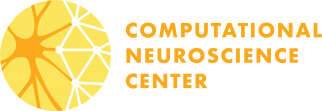The UW Computational Neuroscience Center, led by Drs Adrienne Fairhall (UW Physiology and Biophysics) and Eric Shea-Brown (UW Applied Mathematics), has received an NSF AccelNet award to build an international network of universities and industrial partners to accelerate research at the interface between neuroscience and artificial intelligence. Deeper understanding of brain algorithms and the cellular mechanisms that implement them have the possibility of suggesting novel approaches to artificial intelligence. This collaborative network connects leading centers for academic and industry research in the Pacific Northwest (UW’s Computational Neuroscience Center, University of Oregon, University of British Columbia, the Pacific Institute for the Mathematical Sciences, and the Allen Institute), Paris, France (Paris-Saclay Institute of Neuroscience, Ecole Normale Superieure and INRIA), and Montreal, Canada (UNIQUE, linking University of Montreal and Mila). The network aims to advance understanding of brain structure and dynamics and to use these insights to develop more powerful and efficient computing frameworks that can help solve the very challenging issues now confronting us. The network will also have a focus on neuroethics and the ethics of artificial intelligence. International participating faculty include Yoshua Bengio, recognized for his foundational work in modern artificial intelligence and neural networks and a pioneer of AI ethics; and Alain Destexhe, director of the European Institute for Theoretical Neuroscience and a member of the Human Brain Project.
The project combines expertise of researchers gathering brain data from animals engaged in complex tasks, theorists who make models of cognition, researchers who use machine learning to develop new ways of analyzing data, and experts in artificial intelligence. The network of networks will develop a student cohort with the ability to synthesize findings from new and sophisticated data analysis into novel algorithms for computation, and, vice versa, to translate findings from engineering of computational algorithms into hypotheses for brain function. International experience will enhance research opportunities for undergraduate and graduate students.
The NSF’s Accelerating Research through International Network-to-Network Collaborations (AccelNet) program is designed to accelerate the process of scientific discovery and prepare the next generation of U.S. researchers for multiteam international collaborations. The AccelNet program supports strategic linkages among U.S. research networks and complementary networks abroad that will leverage research and educational resources to tackle grand scientific challenges that require significant coordinated international efforts.




